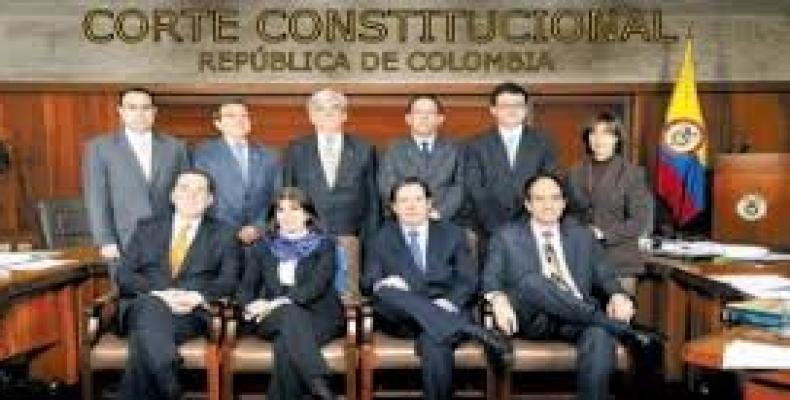Bogota, November 16 (RHC)-- After a week of debates, Colombia’s high court has approved the Special Jurisdiction for Peace, or JEP, a post-conflict transitional justice system that is considered the backbone of the peace agreement. The JEP was approved by Colombia’s Senate in March and will set the tone for prosecution cases for the multitude of human rights crimes committed during the country’s decades-long civil war.
The Constitutional Court approved it unanimously with seven votes in favor, but made several adjustments to the original text agreed upon between the former Revolutionary Armed Forces of Colombia, FARC, and the government of President Juan Manuel Santos in November 2016.
Among the changes are that the participation of former FARC members will be conditional, now that they've demobilized and have become a political party called the Alternative Revolutionary Force of the Commons, with the same acronym FARC.
Another major change involves extradition agreements, in which former rebels who fail to comply with the JEP may be extradited. Also, judges can't compel third parties or civilians investigated for crimes during the armed conflict to appear before the JEP, but those people can do so voluntarily.
For former FARC guerrillas, the measures are mandatory for the successful "transition" into "civilian life" required for their participation in elections. Any former rebel can run for a public office, but if elected and sanctioned by the JEP, he or she will lose their position.
Finally, the jurisdiction could extend its duration from 10 years to a maximum of 20 years. The article on the sanctions was not changed, including the five, eight or 20 years in prison for former rebels who confess to their alleged crimes.
Colombian Court Approves Peace Jurisdiction, With Changes

Rilataj Artikoloj
Komentarioj
Lasu komentarion
Ĉiuj kampoj bezonatasPliaj Vidaĵoj
- Renato Corsetti ne plu estas inter ni
- Pledas Kubo por fortigi latinamerikan unuecon fronte al usonaj minacoj
- Sudafrika prezidento respondas al minacoj de Donald Trump
- Informoj estas kernaj kaj tial indas postuli al institucioj ĝin transdoni
- Unueco estas la ĉefarmilo de Latinameriko, asertis Nicolás Maduro

